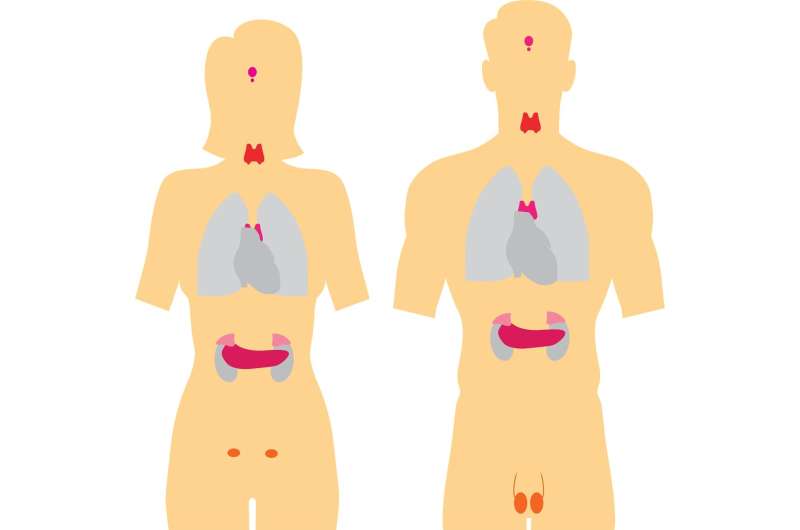This article has been reviewed according to Science X's editorial process and policies. Editors have highlighted the following attributes while ensuring the content's credibility:
fact-checked
peer-reviewed publication
trusted source
proofread
Remission of Cushing's disease associated with higher risk of developing autoimmune disease

A study of more than 250 persons undergoing surgical therapy for Cushing's disease (CD) or nonfunctioning pituitary adenomas (NFPAs) found that patients who achieved remission of CD were more likely than those with surgically treated NFPAs to develop new-onset autoimmune disease within three years after remission. The study is published in Annals of Internal Medicine.
CD results from excessive production of corticotropin (ACTH) by a pituitary adenoma, which causes hypercortisolemia. Transsphenoidal surgery (TSS) is the first-line treatment for most hypersecreting pituitary adenomas. After TSS for CD, adrenal insufficiency occurs once the ACTH-secreting tumor is removed, the signs and symptoms of hypercortisolemia typically improve over time but steroid withdrawal symptoms may develop after remission of CD. In addition, the development of new autoimmune disease in patients after CD remission has been observed, but research is limited.
Researchers from Harvard Medical School identified 194 persons with CD and 92 persons with NFPA, frequency-matched for age and sex, who underwent pituitary surgery. The authors found that persons with CD who achieved remission were more likely than those with surgically treated NFPAs to develop new-onset autoimmune disease within three years after remission. The cumulative incidence was 10.4%.
According to the authors, higher prevalence of adrenal insufficiency and the lower nadir serum cortisol levels in the CD group suggest that the postoperative adrenal insufficiency might have contributed to the development of autoimmune diseases. They also note that patients with CD who have a family history of autoimmune disease should be carefully monitored after achieving remission.
In addition, the authors add that higher doses of early postoperative glucocorticoid replacement might be associated with decreased risk for development of autoimmune disease. These findings have implications for the understanding of the natural history of autoimmune disease and its relationship to cortisol fluctuations.
More information: Autoimmune Disorders Associated With Surgical Remission of Cushing's Disease, Annals of Internal Medicine (2024). DOI: 10.7326/M23-2024


















